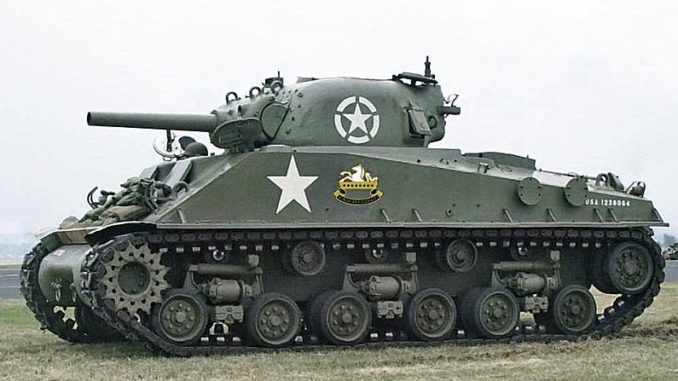
The German military and United States military were opponents during World War II… usually. The assault on Castle Itter changed that equation. It is generally believed to be the only time during the war that segments of the US and German militaries joined forces to fight a common enemy.
The year was 1945, and the month was May. Within two weeks, German forces in both the Eastern and Western fronts would surrender, but for the moment they were still fighting. As always, the Waffen-SS – the military arm of the ultra-loyal SS – remained ready to fight for Hitler and the Nazi vision, and they controlled Castle Itter in Austria. It was a secluded castle in the Alps which had been converted into a hotel in the early 20th century and was quietly being used as a prison for prominent French figures who were viewed as potentially useful, operated in conjunction with the nearby Dachau concentration camp.
In late April, Dachau had been liberated by American forces. The commandant had fled to Castle Itter, and under the belief that defeat was inevitable and his atrocities would become known, he committed suicide. Two days later, the commander of Castle Itter and the camp guards retreated, leaving the prisoners in control of the grounds.
It was not as rosy a scenario as might be imagined. While the commander and guards were no longer around, the area remained under the control of the Waffen-SS. If they became convinced the war was lost, the obvious move would be to enter Castle Itter and slaughter the prisoners, lest they identify SS members for Allied forces.
With knowledge that American troops were in the area, prisoners convinced some friendly workers at Castle Itter to try to get word to US troops about their predicament. First they convinced the Yugoslavian handyman, Zvonimir Cuckovic, to seek help. Without any indication of success, they assumed he’d been killed. The next worker to brave the SS was a local cook, Andreas Krobot.
Krobot found some helpful people… but they were Germans. Major Sepp Gangl had taken the opportunity of the breakdown in command to abandon the Nazi party, but unlike most who had followed that course he’d not deserted. Rather, he’d shifted sides, leading some soldiers to fight for their German homeland in attacks against the Nazi loyalists. Gangl heard Krobot’s information and passed it along to a US tank commander, Captain Jack Lee, Jr. The pair performed joint reconnaissance, assessed the situation, and waged a quick strike to gain control of Castle Ittel.
The only Americans available for the emergency action were Lee and his tank crew. They worked beside Gangl and his men and the prisoners as they readied themselves for a siege by the SS, only to gain an unexpected ally: Captain
Kurt-Siegfried Schrader, a Waffen-SS officer who, like Gangl, had turned his back on Nazism. With his aid, the defenders developed likely attack plans by the SS and prepared for the onslaught.
When the attack came, the efforts at hardening the castle proved inadequate. The tank was destroyed, and Gangl was killed by a Waffen-SS sniper. The castle walls were breached. Ammunition for the defenders was almost gone.
That’s when the other shoe dropped. Cuckovic had, in fact, reached Americans and informed them of the plight of the French prisoners. Because the castle location was outside of the jurisdiction of the American forces he’d contacted, the chain of command had ignored his pleas for help. Against orders, Major John T. Kramers dispatched a small rescue group of tanks and support personnel to free Castle Ittel.
The timing was like something out of a movie. All seemed lost… and then the tanks arrived. It was too late for Gangl, but most of the troops and the prisoners survived and the Waffen-SS was handed one of their final decisive defeats of WWII. Captain Jack Lee was subsequently awarded the Distinguished Service Cross for heroism.
Question of the night: Have you ever snatched victory from the jaws of defeat?
